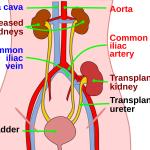Modern medicine has produced many kinds of high-tech miracles, among them gene therapy to correct malfunctioning genes,
CRISPR
Mark and I began our conversation by reflecting on historical medical achievements, highlighting the transformative impact of vaccines, especially the Salk polio vaccine, and the remarkable progress in open-heart surgery.
I began by dismissing the term "GMO" as a meaningless pseudo-category, emphasizing that genetic modification is a seamless continuum that has been practiced for centuries.
Here are the eleven from Nature, plus two bonus picks from me.
Join ACSH directors of bio-sciences and medicine Cameron English and Dr. Chuck Dinerstein as they break down these stories on episode 12 of the Science Dispatch podcast:
As summer grinds on, the Non-GMO Project is here to reassure consumers that seedless watermelon is not genetically modified. “Are those watermelons a GMO?
For more than two decades, anti-GMO groups have resorted to the same dishonest claims about the risks of genetically engineered crops.
Scientists have known for many years that genetically engineered (GE) crops pose no greater risk to human health or the environment than their conventional counterparts.
Britain's anti-GMO groups are none too pleased following news that the UK is poised to allow farmers to grow a gene-edited tomato engineered to produce higher levels of vitamin D.
Research going back many years has clearly documented that organic farming tends to require more land while producing less food than its conventional counterpart.












